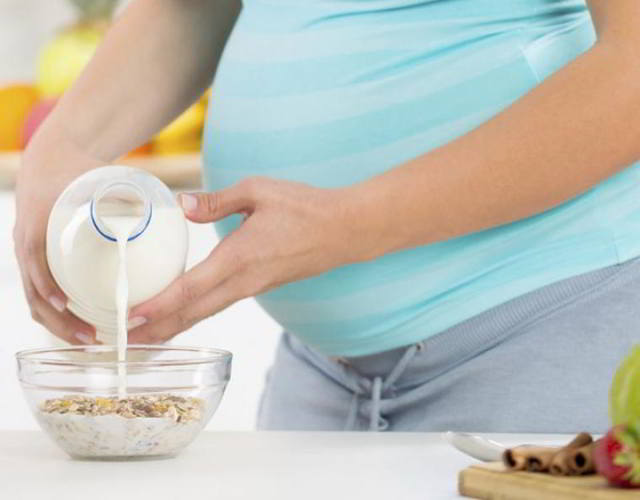Milk and its derivatives are products which can be eaten during pregnancy. In addition to their nutritional value, they contain a range of components that make them highly suitable for this stage of a woman’s life. Folic acid found in dairy helps prevent neural alterations in the embryo, especially during the first trimester. Vitamin A improves the vision of the pregnant woman, whereas zinc is important for the brain development of the foetus and the production of antibodies. Then, calcium and vitamin D are necessary for bone formation.
In relation to the consumption of dairy products, it is advisable to avoid raw milk and rather drink a product that is pasteurised. The germs that can be harmful to the mother and the baby are eliminated through pasteurisation because milk is made safer for consumption by being treated with mild heat. Pasteurised milk’s expiry does not exceed one week, and it must be stored in the fridge. Another method is to sterilise it at a temperature of 135ºC or higher, thus killing most of the microorganisms. Sterilised milk can be stored at room temperature and has a longer shelf life than pasteurised milk.
You can consume up to four portions of dairy products to maintain your health and that of your foetus. For example, you can drink a glass of milk (250 ml), eat two yoghurts (preferably without or with little sugars and sweeteners) and 40 grams of cured or 80 grams of fresh cheese.
Pregnant women who have allergies or lactose intolerance may choose plant-based milk such as rice, oat, soy, millet, coconut, or almond milk.
Always read cheese labels to be sure that the milk used for production was pasteurised and remove the rind.
Although you can eat cheese safely, we recommend consuming less of the cured cheeses because they are rich in saturated fat and salt. Give priority to cottage and other fresh cheeses during your pregnancy.
Gregorio Manzanera
IMAGE: https://quepadres.com/consumo-leche-durante-embarazo/

